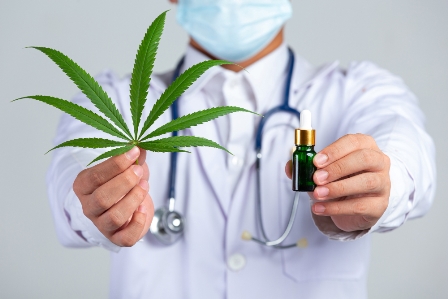In recent years, cannabidiol (CBD) has emerged from obscurity to become one of the most talked-about wellness compounds on the market. But what exactly does CBD do, and is the hype justified by scientific evidence?
This comprehensive guide cuts through the noise to explore the real effects of CBD, backed by current research and clinical studies. We’ll examine both the potential benefits and possible side effects, helping you make informed decisions about CBD use.
CBD is non-intoxicating – Unlike THC, it won’t make you feel “high”
Research-backed benefits – From pain relief to anxiety reduction
Understanding the balance – Potential benefits vs. possible side effects
Note: While CBD shows promise for various conditions, it’s not approved by the FDA for most uses (except Epidiolex for certain seizures). Always consult your healthcare provider before starting any new supplement regimen.
What Exactly is CBD?
Cannabidiol (CBD) is one of over 100 naturally occurring compounds called cannabinoids found in the cannabis plant. Unlike its more famous cousin THC (tetrahydrocannabinol), CBD is non-psychoactive, meaning it won’t get you “high.”
Key Facts About CBD:
- Derived from hemp or marijuana plants
- Legal in most U.S. states when derived from hemp (containing less than 0.3% THC)
- Available in oils, edibles, topicals, capsules, and more
- Interacts with the body’s endocannabinoid system
The Potential Benefits of CBD: What Research Shows
Scientific research into CBD’s effects is ongoing, but current studies suggest several potential health benefits:
Pain Management
CBD may help reduce chronic pain by impacting endocannabinoid receptor activity and reducing inflammation.
Anxiety & Stress Relief
Studies indicate CBD may help reduce anxiety in both human and animal studies, potentially benefiting those with PTSD and social anxiety.
Improved Sleep
By addressing root causes like anxiety or pain, CBD may help improve sleep quality and duration for some users.
Neuroprotective Properties
Research suggests CBD may benefit those with neurological disorders like epilepsy and multiple sclerosis.
A 2018 World Health Organization report stated that “CBD exhibits no effects indicative of any abuse or dependence potential” and that “to date, there is no evidence of recreational use of CBD or any public health related problems associated with the use of pure CBD.”
Potential Side Effects and Safety Considerations
While CBD is generally well-tolerated, some users may experience:
Dry mouth
Drowsiness
Changes in appetite
Diarrhea
Potential drug interactions
Important Safety Information:
CBD can interact with certain medications, including blood thinners. Always consult your healthcare provider before using CBD, especially if you take prescription medications or have underlying health conditions.
How to Use CBD Effectively: A Beginner’s Guide
Sublingual CBD Oil/Tinctures
Place drops under your tongue for 30-90 seconds before swallowing. Effects typically begin within 15-45 minutes and last 4-6 hours.
Best for: Precise dosing, systemic effects, faster absorption than edibles
CBD Edibles (Gummies, Capsules)
Swallow like any supplement. Effects begin in 45 minutes to 2 hours and last 6-8 hours.
Best for: Discreet use, long-lasting effects, consistent dosing
CBD Topicals (Creams, Balms)
Apply directly to skin. Effects are typically localized and begin within minutes.
Best for: Targeted relief of muscle/joint pain or skin conditions
Vaping CBD
Inhale vaporized CBD oil. Effects begin within minutes but only last 2-3 hours.
Best for: Fastest absorption, but potential lung health concerns
CBD Dosage Guidelines
There’s no one-size-fits-all CBD dosage. Factors like body weight, metabolism, and the condition being treated all play a role. Most experts recommend:
- Beginner: 5-10mg per dose
- Intermediate: 10-25mg per dose
- Advanced: 25-50mg+ per dose
The “start low and go slow” approach is recommended—begin with a small dose and gradually increase every 3-7 days as needed.
Frequently Asked Questions About CBD Effects
No, pure CBD does not produce the “high” associated with cannabis. That psychoactive effect comes from THC, another compound in cannabis. CBD products derived from hemp contain less than 0.3% THC, which isn’t enough to cause intoxication.
Duration depends on the method of consumption. Sublingual oils typically last 4-6 hours, edibles 6-8 hours, and inhaled CBD 2-3 hours. Topical effects are more variable depending on application.
Current research suggests CBD is not addictive and may actually help with substance abuse disorders. The World Health Organization has stated that CBD exhibits no effects indicative of abuse or dependence potential.
Yes, many people use CBD daily as part of their wellness routine. Some research suggests regular use may lead to cumulative benefits. However, it’s wise to periodically assess whether you still need it.
Key Takeaways About CBD Effects
CBD interacts with the body’s endocannabinoid system but doesn’t cause a high
Potential benefits include pain relief, reduced anxiety, and improved sleep
Side effects are typically mild but can include dry mouth or drowsiness
Dosage varies by individual – start low and increase gradually
Consult a doctor before use if taking medications or have health concerns
Conclusion: Understanding CBD Effects for Informed Use
CBD has emerged as a promising natural compound with a range of potential therapeutic benefits, from pain and anxiety relief to neuroprotective properties. While research continues to uncover the full scope of CBD’s effects, current evidence suggests it can be a valuable addition to many wellness routines when used responsibly.
CBD offers therapeutic potential without psychoactive effects
Effects vary based on consumption method and individual factors
Quality matters – always choose third-party tested products
As with any supplement, it’s important to approach CBD use thoughtfully. Start with low doses, monitor your body’s response, and consult with a healthcare professional if you have any concerns or are taking medications. By understanding both the potential benefits and limitations of CBD, you can make informed decisions about whether it’s right for your personal health and wellness goals.
Remember that while CBD shows significant promise, it’s not a miracle cure. Realistic expectations combined with quality products and proper usage will give you the best chance of experiencing CBD’s potential benefits.


